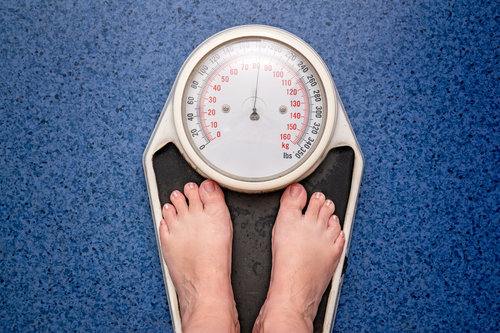When it comes to weight loss, metabolism is always the topic of conversation. Many blame a “slow metabolism” for their weight struggles and others credit a “fast metabolism” for staying lean with no effort. But what is metabolism and how does it affect your body’s ability to lose weight? Knowing the role of metabolism in weight loss is key to developing strategies for your body weight, overall health, and energy levels.
In this post, we will go through how metabolism works, the factors that affect metabolic rate, and how our nutrient-rich Mediterranean Paleo meal plans can help boost your weight loss.
Definition and Metabolism Basics
Metabolism is how your body turns food and drinks into energy. This energy is used for all bodily functions from breathing to physical activity. When we eat, our bodies break down food into smaller components, glucose which is then used to fuel our cells. When energy intake surpasses energy output, the body stores the excess energy as fat.
Calories and Oxygen in Energy Release
Calories are a unit of energy. When we eat our body uses calories to do various functions. Oxygen plays a big role in this process as it helps release energy from the calories we consume. The more active we are the more calories our body needs hence more energy expenditure.
Metabolism in Body Functions
Metabolism is life-sustaining. It regulates many body functions including:
- Breathing: Our body needs energy to breathe in oxygen and breathe out carbon dioxide.
- Circulation: Metabolism fuels the heart to pump blood all over the body.
- Cell Growth and Repair: Energy is needed for cells to grow and repair themselves.
- Temperature Regulation: Metabolism helps regulate body temperature so that organs function properly.
Factors that Affect Metabolic Rate
Knowing the factors that affect metabolism is key to anyone who wants to manage their weight effectively. Several key elements determine how efficiently your body burns calories.
Individuals with a slower metabolism tend to burn fewer calories, which affects their dietary needs and weight management strategies.
Age: Effects on Metabolic Rate and Muscle Mass
As we age our metabolic rate slows down. This slowdown is often linked to loss of muscle mass. Muscle tissue burns more calories than fat tissue so losing muscle will slow down your metabolism. Hormonal changes that occur as we age also affect metabolic processes. Staying active and incorporating resistance training in your routine can help minimize this decline. Maintaining muscle mass through resistance training can help achieve less body fat by boosting metabolic rate.
Sex: BMR of Men and Women
Men and women have different basal metabolic rates (BMR). Men have higher BMR due to more muscle mass. This means men burn more calories at rest than women. Knowing these differences can help you tailor your weight loss strategy to each gender.
Muscle Mass: Effects on Calorie Burning
Muscle mass is a big factor in metabolism. The more muscle you have the more calories your body burns even at rest. Incorporating strength training into your fitness routine can help you build muscle which in turn boosts your metabolic rate. That’s why many weight loss programs emphasize resistance training as a key component.
Physical Activity: Exercise Boosts Metabolism and Helps in Weight Loss
Physical activity is one of the most effective ways to boost your metabolism. Exercise not only burns calories during the activity but also increases your metabolic rate for hours after. HIIT and strength training are most effective in boosting metabolism. By combining different types of exercise you can create a balanced routine that promotes weight loss and overall health.
Metabolism in Weight Loss
Knowing the role of metabolism is key to weight loss. Metabolism is the process of converting food and drinks into energy. This energy powers all bodily functions from breathing to physical activity. To lose weight you need to create a calorie deficit. This means taking in fewer calories than your body burns.
Metabolic disorders can disrupt normal metabolic processes, making it important to understand these conditions within the context of weight management.
Calorie Deficit
To lose weight you need to burn more calories than you take in. This calorie deficit will force your body to use stored fat for energy. For effective weight loss aim for a moderate deficit which can be achieved through a combination of diet and exercise. Reducing calorie intake and increasing physical activity will lead to significant weight loss over time.
Adaptation
As you lose weight your metabolism may slow down. This is called metabolic adaptation. When you lose pounds your body needs fewer calories to function. This decrease in your basal metabolic rate (BMR) will make it harder to lose weight. You need to recognize this challenge and adjust your strategy accordingly.
Strategies to Overcome Adaptation
To counteract metabolic adaptation try:
- Increase Physical Activity: Add more exercise to your routine. Strength training can help you build muscle which burns more calories at rest.
- Reassess Your Calorie Intake: As you lose weight your calorie needs may change. Regularly reevaluate your diet to maintain a calorie deficit.
- Mix Up Your Workouts: Vary your exercise routine can stimulate your metabolism. Try cycling, swimming or high-intensity interval training (HIIT).
Diet and Nutrition
Diet and nutrition play a big role in how our metabolism works. The foods we eat can either boost or slow down our metabolic rate and directly affect our ability to lose weight. Knowing these dynamics will help you make informed decisions to support your weight management goals.
Thermic Effect of Food (TEF)
The thermic effect of food refers to the energy required to digest, absorb, and process the nutrients in our meals. Different foods have varying TEF levels, some require more energy to metabolize than others. For example, protein-rich foods have higher TEF than carbohydrates and fats. So eating more protein can boost your metabolic rate as your body burns more calories digesting it.
Fat Burning Foods
Some foods can boost metabolism and burn fat. Add these to your diet to support your weight loss. Here are some:
- Protein: Lean meats, fish, eggs, and legumes help build muscle which burns more calories at rest.
- Spicy Peppers: Ingredients like cayenne pepper contain capsaicin which can temporarily increase metabolic rate.
- Green Tea: Rich in antioxidants green tea has been shown to increase fat oxidation and improve metabolic function.
Balanced Diets
A balanced diet is the key to a healthy metabolism. Eating a variety of foods will ensure your body gets all the necessary nutrients. This balance will support overall metabolic health and regulate hormonal levels which can affect your metabolic rate. Try to include:
- Whole grains for sustained energy
- Fruits and vegetables for vitamins and minerals
- Healthy fats like avocados and nuts support hormonal balance
Lifestyle Factors
Several lifestyle factors affect your metabolism. Knowing these will help you optimize your metabolic rate and support weight management.
Exercise
Exercising regularly is one of the most effective ways to boost your metabolism. High-intensity interval training (HIIT) and strength training are the most beneficial. HIIT workouts are short bursts of intense exercise followed by rest or low intensity. This type of training burns calories during the workout and increases your metabolic rate for hours after. Strength training helps build muscle mass which is important since muscle tissue burns more calories at rest than fat tissue. Add both HIIT and strength training to your routine and you’ll see a big difference in your weight loss.
Sleep
Sleep is important for a healthy metabolism. Lack of sleep can disrupt hormonal balance, especially the hormones leptin and ghrelin which regulate hunger and appetite. When you don’t get enough rest you may experience increased cravings for unhealthy foods which can lead to weight gain. Aim for 7-9 hours of quality sleep each night to support metabolic function and overall health. Prioritize sleep and you’ll make better food choices and have more energy for physical activity.
Hormonal Balance
Hormones control metabolism and body weight. Factors like stress, diet, and sleep can affect hormone levels. For example, chronic stress can increase cortisol levels which can increase appetite and promote fat storage, especially around the belly. Maintaining hormonal balance through a healthy lifestyle is key to a good metabolism. Exercise, a balanced diet, and stress management techniques can help you keep your hormones in check and support your weight loss.
Start Your Weight Loss Journey With Upstate Weight Loss Solutions!
Ready to take control of your weight loss journey? Let our team at Upstate Weight Loss Solutions help you unlock the potential of your metabolism and achieve your goals. With personalized support and expert guidance, we’re here to provide you with the tools and strategies you need for lasting success
Contact us at (864) 514-6463 for more information today!




